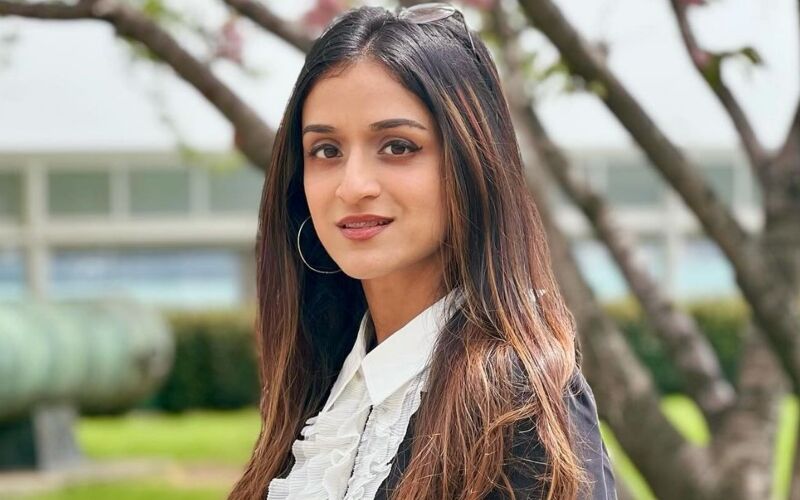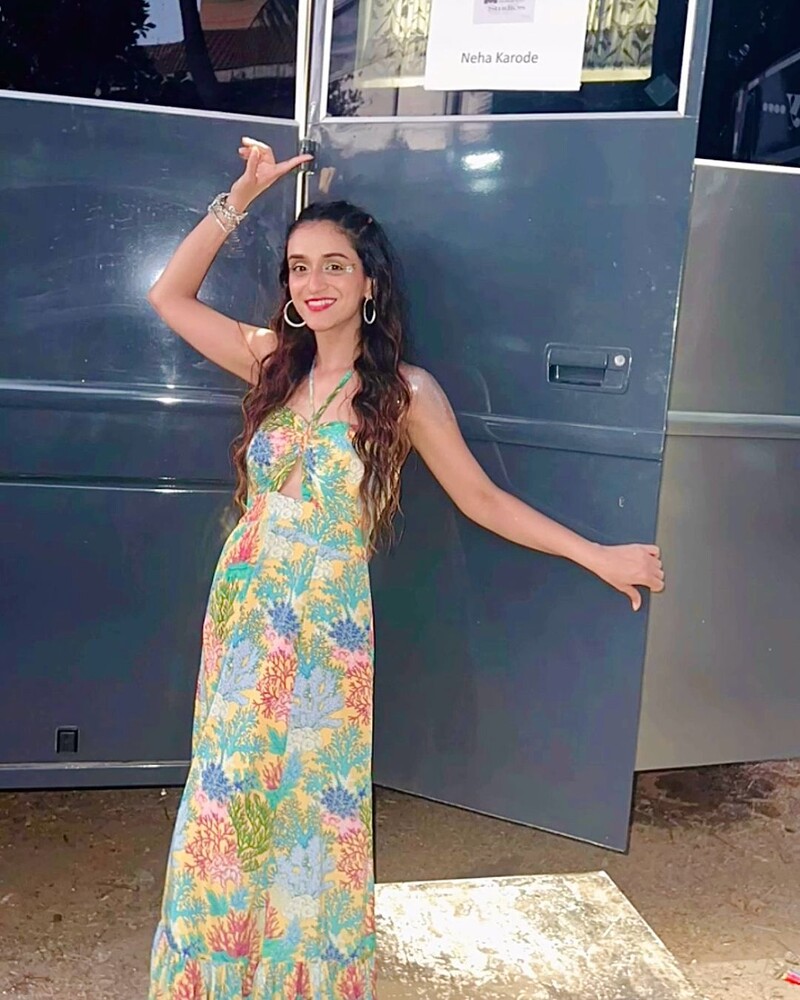EXCLUSIVE! Tribhuvan Mishra CA Topper Fame Neha Karode Opens Up About Her Journey, Her Inspiration, And More
Neha Karode recently sat down for a chat with SpotboyE to speak about her working experience, journey, and her new rap song ‘Oye Sun Bey’ from ‘Aliya Basu Gayab Hai’

Neha Karode is a playback singer, composer, and lyricist who is known for playbacks in the movies Noida Ka Superman, Tribhuvan Mishra CA Topper, Anek (2022), Nikamma (2022), Time to Dance (2021), and Milan Talkies (2019). Neha recently sang a rap song in the movie Aliya Basu Gayab Hai for the song Oye Sun Bey, which stars Raima Sen and Vinay Pathak.
Neha is also known for recreating music by giving a Gen-Z touch and recently she recreated Shah Rukh Khan's ‘Tuje Dekha To Yeh Jana Sanam’ song from the film DDLJ along with music sensation Kumar Sanu. She has worked with many notable composers such as Shantanu Moitra, Amit Trivedi, Arko Pravo Mukherjee, and more.

Let's delve more into Neha's journey!
Tell us something about yourself and what inspired you to pursue a career in the music industry.
My path has pretty much been a full circle. I started as a musician, and I've also ended up as a musician after exploring various forms of work. I grew up training in both Western and Hindustani classical across continents. I always knew I wanted to be a singer, but there was also this fear about entering a space with a clear monopoly of a few voices and labels. So that's why I decided to study filmmaking. Although that's also a creative field, it seemed like a safer kind of space where there are many, many avenues where I can get work rather than just singing. So I became a filmmaker, and I made a shift to Bombay and I think fate had it that my first job itself provided me a chance to meet a lot of people from studios. Once I got a whiff of music studio life, I knew I had to make the shift.
What challenges have you faced in the music industry, and how have you overcome them?
I think the biggest challenge is that of patience because there is a huge gestation period involved with any project that you work on. So suppose, you might reach out to a composer today, it could be months, days, or years before the composer sees you to be an appropriate fit for a song. Now once the composer thinks you're fit for a song, they call you to sing it. On that particular day, you might perform well or you might not. Now, when will they call you the next time? Suppose you've sung the song well. What is the next step? Maybe the song doesn't make it to a film. So then that is stuck. If it makes it to a film, is that film gonna release soon? Is that song gonna go through many changes? Is maybe the singer gonna be changed? There are so many question marks at play that, it can test your patience sometimes. So, I primarily make my music as an indie singer-songwriter where I get autonomy over my creative choices giving life a good balance of the known and unknown.
Can you share a defining moment in your career that made you realize music was your true calling?
Yes, actually. I always knew I wanted to be a musician, but I wasn't sure if it was gonna be my primary, job or if it was gonna be something that I do on the side. When I shifted to Bombay, I was a few days into being a trainee as a producer and I was just not enjoying the corporate world, the way everything is dictated by Excel sheets in a creative field. So, I remember it was a rainy day and I called my mom and I said that I'm not gonna end up doing this job for too long. But the truth behind these romantic stories is that one needs to be financially secure in order to leave a job. A few ishaaras here and there helped. One day, I was just humming something in the corridor and this guard came up to me and he said that some auditions are happening here. They heard you and asked me to send you upstairs. I just walked into an audition that people went prepared for and I walked out with the lead role in the musical.
Apart from singing and composition you also write songs, from where do you get the inspiration or whom do you look forward to when it comes to writing peppy, rap, or even romantic songs?
So I would say that my inspiration is not about peppy rap or romantic. My inspiration is, behind writing is just one person, and that's my mom. My mom is a writer as well. She doesn't write songs, but she has written all her life about art. She can be writing about a modern artist who has been appreciated for a 100 years or some contemporary artist who works with installations, but she still is able to bring in her own touch. Genre barely matters. Everything stems from experiences that I have had, conversations or writings that I have consumed. So I think I have enough material there, in terms of vocabulary. What's interesting as a writer needs to come from me, like, how I can express an old feeling that everyone can resonate with but through new words and new metaphors.
What do you believe are the key elements that make a song recreation successful and resonate with both old and new audiences?
So there are 2 elements to a good recreation. The first and foremost major thing is that the essence of the old song should not be lost. Some element of why it was created needs to remain in why it is being recreated as well. The second important aspect of a good song recreation is that whatever new is added to it should be very, very good. Either it should be sonically brilliant or conceptually interesting, unique.
You’ve contributed rap and vocals to the song ‘Oye Sun Bey’ in the upcoming film ‘Aliya Basu Gayab Hai.’ What was the experience like working on this project?
It was a very, very exciting experience. They were looking for a vocalist who can deliver both rap as well as classical alaaps. And I'm very, very lucky and fortunate that the writer of the song, Dr Sagar, who's a fabulous writer, thought of me as someone who could manage both these kinds of genres well in one song.
What message or feeling do you hope listeners take away from?
The song is about women saying that we have enough agency to control our own narrative, and that's how it's gonna be from now and I hope that all the women listeners, feel that thing coming across when they hear the song.
What are your thoughts on the growing trend of incorporating rap into Bollywood music?
I'm always very, very excited when genres are combined. So I always look forward to that surprise element in any song. Like, it might start in a certain way and then it can break into rap or a rap song can suddenly break into a sitar solo. I always look forward to these kinds of subgenres getting clubbed together as long as it's done well.
What are your future projects?
My next song is an English song. It's called ‘Move On Easily’. It's an independent release. It's a song about moving on, but it's coming from the perspective of the person who hasn't moved on. It's kind of a sad song, but I've given it a sarcastic spin. Even in the video, the visuals of the song are about how dating apps have become the norm and the girls can just not comprehend what they're like. But what makes it funny is that I've shown this through balloons instead of humans in the video.
Image Source: Instagram
_2025-1-13-6-14-22_small.jpg)
_2025-1-14-6-12-28_small.jpg)
_2025-1-14-6-23-6_small.jpg)
_2025-1-14-6-29-53_small.jpg)
_2025-1-14-10-41-6_small.jpg)